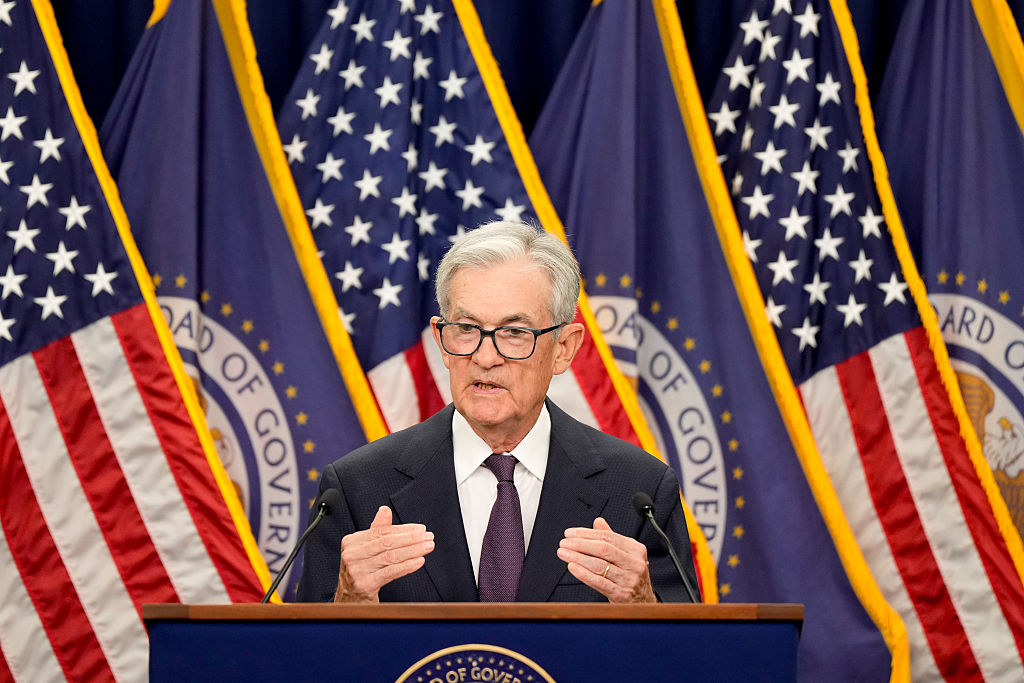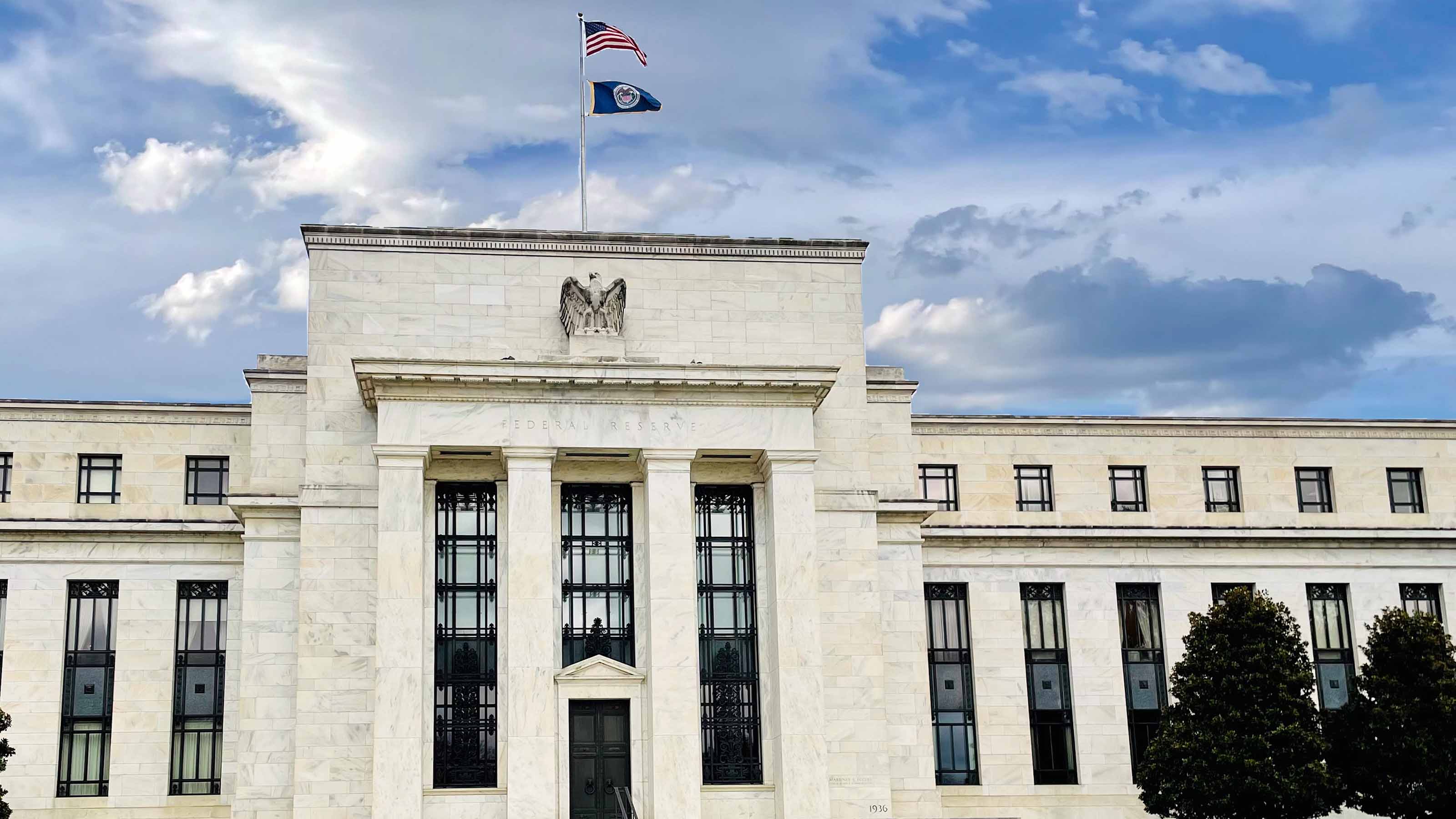When Is the Next Fed Meeting?
Markets expect interest rates to remain unchanged at the next Fed meeting.

Profit and prosper with the best of Kiplinger's advice on investing, taxes, retirement, personal finance and much more. Delivered daily. Enter your email in the box and click Sign Me Up.
You are now subscribed
Your newsletter sign-up was successful
Want to add more newsletters?

The Federal Reserve is in a tricky spot these days as the central bank's rate-setting committee gathers for its next meeting.
On the one hand, economic growth remains solid and inflation remains above the Fed's long-term target. Price pressures could resurface as a result of President Donald Trump's tariff policies.
On the other, the jobs outlook is weakening, and too many folks are priced out of the housing market. Meanwhile, economists, strategists and investors are increasingly concerned about the central bank's independence going forward.
From just $107.88 $24.99 for Kiplinger Personal Finance
Become a smarter, better informed investor. Subscribe from just $107.88 $24.99, plus get up to 4 Special Issues

Sign up for Kiplinger’s Free Newsletters
Profit and prosper with the best of expert advice on investing, taxes, retirement, personal finance and more - straight to your e-mail.
Profit and prosper with the best of expert advice - straight to your e-mail.
December's CPI report showed that consumer inflation held steady at 2.7%, relieving pressure on the Federal Open Market Committee (FOMC), the Fed's rate-setting panel, to raise rates. We should see further cooling ahead thanks to easier comparisons.
"The 12-month inflation rate for all prices will drop in January through March, but mostly because of strong price increases a year ago raised the base for the year-over-year calculation," writes Kiplinger economist David Payne.
Sluggish hiring, meanwhile, leaves the possibility of future rate cuts on the table.
These twin pulls make the Fed likely to leave the short-term federal funds rate unchanged at its next meeting, experts says.
"Firmer economic growth may be translating into some welcome improvement in labor markets, which should be sufficient to sideline the FOMC at month's end," writes Sal Guatieri, senior economist at BMO Capital Markets. "At the same time, the peak-tariff effect on inflation could be in the rearview mirror, opening the door for more rate cuts this year."
When you consider the Fed's dual mandate against the backdrop of sticky inflation and a softening labor market, it makes sense that folks are obsessed with tracking when the next Fed meeting is coming up.
Lower interest rates today equal higher returns for equities tomorrow.
The next Fed meeting: What to expect

As you can see from the FOMC meeting calendar below, the committee meets eight times a year, or about once every six weeks. The FOMC is required to meet at least four times a year and might convene additional meetings if necessary. The convention of meeting eight times per year dates to the market stresses of 1981.
FOMC meetings last two days and conclude with the committee releasing its policy decision at 2 pm Eastern Standard Time. The Fed chief then holds a press conference at 2:30 pm. (Pro tip: As closely scrutinized as the Fed statement might be, market participants are usually even more keen on what the Fed chair has to say in the press conference.)
As for the next Fed meeting, it will begin on Tuesday, January 27, and conclude with a policy statement on Wednesday, January 28, at 2 pm EST.
As of January 20, interest rate traders assigned a 97% probability to the FOMC leaving the fed funds rate unchanged at a target range of 3.50% to 3.75%, according to CME FedWatch.
That's up from 78% a month ago. The odds of a quarter-point cut stood at 3%, down from 22% last month.
The schedule of upcoming Fed meetings is listed below, courtesy of the FOMC.
January 27-28, 2026 |
March 17-18, 2026 |
April 28-29, 2026 |
June 16-17, 2026 |
July 28-29, 2026 |
September 15-16, 2026 |
October 27-28, 2026 |
December 8-9, 2026 |
Related Content
Profit and prosper with the best of Kiplinger's advice on investing, taxes, retirement, personal finance and much more. Delivered daily. Enter your email in the box and click Sign Me Up.

Dan Burrows is Kiplinger's senior investing writer, having joined the publication full time in 2016.
A long-time financial journalist, Dan is a veteran of MarketWatch, CBS MoneyWatch, SmartMoney, InvestorPlace, DailyFinance and other tier 1 national publications. He has written for The Wall Street Journal, Bloomberg and Consumer Reports and his stories have appeared in the New York Daily News, the San Jose Mercury News and Investor's Business Daily, among many other outlets. As a senior writer at AOL's DailyFinance, Dan reported market news from the floor of the New York Stock Exchange.
Once upon a time – before his days as a financial reporter and assistant financial editor at legendary fashion trade paper Women's Wear Daily – Dan worked for Spy magazine, scribbled away at Time Inc. and contributed to Maxim magazine back when lad mags were a thing. He's also written for Esquire magazine's Dubious Achievements Awards.
In his current role at Kiplinger, Dan writes about markets and macroeconomics.
Dan holds a bachelor's degree from Oberlin College and a master's degree from Columbia University.
Disclosure: Dan does not trade individual stocks or securities. He is eternally long the U.S equity market, primarily through tax-advantaged accounts.
-
 4 High-End Experiences Worth the Splurge After 50
4 High-End Experiences Worth the Splurge After 50These curated date ideas provide the perfect backdrop for couples ready to enjoy the very best that the world has to offer.
-
 Health Care Stocks Have Sagged. Can You Bet on a Recovery?
Health Care Stocks Have Sagged. Can You Bet on a Recovery?The flagging health care sector has perked up a bit lately. Is it time to invest?
-
 Costco's Auto Program: Can Membership Pricing Really Save You Money on a Car?
Costco's Auto Program: Can Membership Pricing Really Save You Money on a Car?Costco's Auto Program can simplify the car-buying process with prearranged pricing and member perks. Here's what to know before you use it.
-
 Health Care Stocks Have Sagged. Can You Bet on a Recovery?
Health Care Stocks Have Sagged. Can You Bet on a Recovery?The flagging health care sector has perked up a bit lately. Is it time to invest?
-
 What Is an Assumable Mortgage and Could It Save You Thousands?
What Is an Assumable Mortgage and Could It Save You Thousands?With mortgage rates still elevated, taking over a seller’s existing home loan could lower monthly payments — if the numbers work.
-
 Your Retirement Age Is Just a Number: Today's Retirement Goal Is 'Work Optional'
Your Retirement Age Is Just a Number: Today's Retirement Goal Is 'Work Optional'Becoming "work optional" is about control — of your time, your choices and your future. This seven-step guide from a financial planner can help you get there.
-
 Have You Fallen Into the High-Earning Trap? This Is How to Escape
Have You Fallen Into the High-Earning Trap? This Is How to EscapeHigh income is a gift, but it can pull you into higher spending, undisciplined investing and overreliance on future earnings. These actionable steps will help you escape the trap.
-
 I'm a Financial Adviser: These 3 Questions Can Help You Navigate a Noisy Year With Financial Clarity
I'm a Financial Adviser: These 3 Questions Can Help You Navigate a Noisy Year With Financial ClarityThe key is to resist focusing only on the markets. Instead, when making financial decisions, think about your values and what matters the most to you.
-
 Dow Absorbs Disruptions, Adds 370 Points: Stock Market Today
Dow Absorbs Disruptions, Adds 370 Points: Stock Market TodayInvestors, traders and speculators will hear from President Donald Trump tonight, and then they'll listen to Nvidia CEO Jensen Huang tomorrow.
-
 Where Olympians Store Their Medals is a Great Lesson For Your Valuables and Cash
Where Olympians Store Their Medals is a Great Lesson For Your Valuables and CashWhat you can learn about protecting your cash and values from where Olympians store their medals.
-
 Private Capital Wants In on Your Retirement Account
Private Capital Wants In on Your Retirement AccountDoes offering private capital in 401(k)s represent an exciting new investment opportunity for "the little guy," or an opaque and expensive Wall Street product?